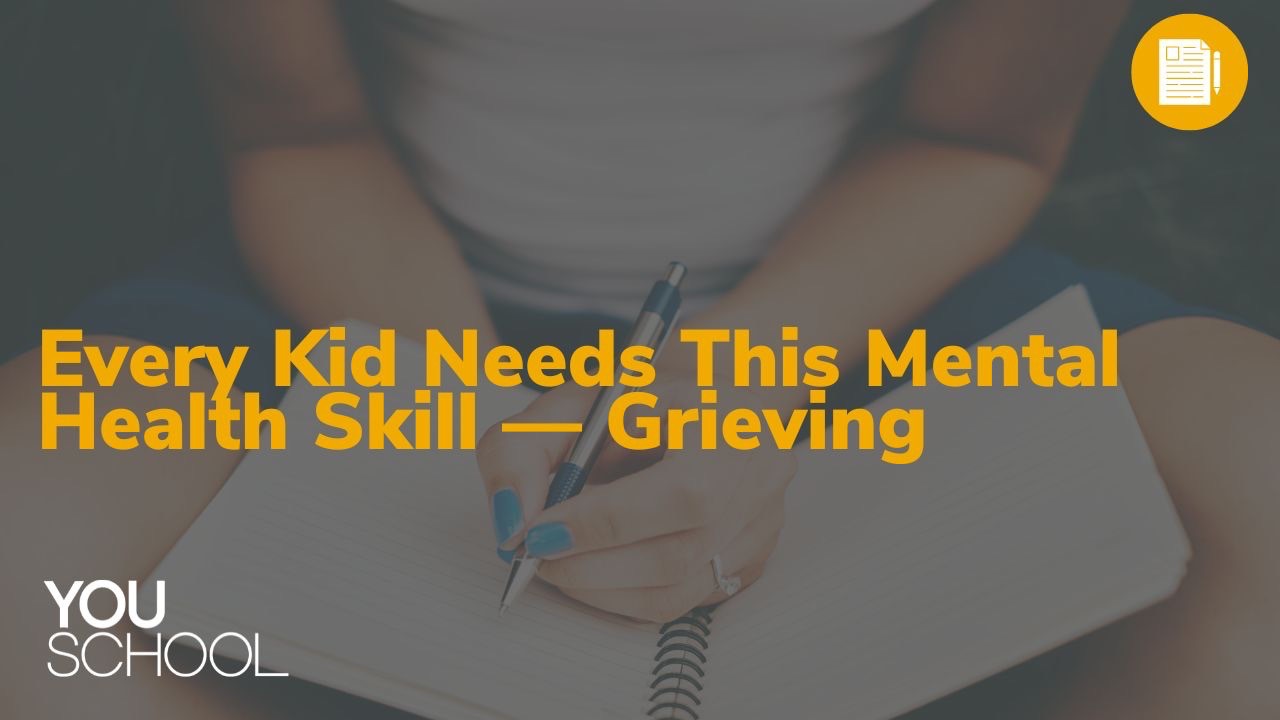Every Kid Needs This Mental Health Skill — Grieving

Loss is an inevitable part of life. Sometimes it comes in the form of acute pain—like the loss of a loved one, a natural disaster, or an accident. Other times it can come through losing something you had hoped for—like getting cut from the team, rejection from a school you applied to, or losing a romantic relationship. But, a loss can also be regarded as the loss of what should have been. Like the loss of an engaged parent, the loss felt from loneliness or the loss of a friend who lets you down.
As my good friend, Laing Rikkers, says, every loss must be dealt with, and the steps are pretty simple. She encourages anyone to “walk it out, talk about it, and write about it.” Those three practices allow us to get grief moving in and out of our bodies, make sense of the pain in our hearts and minds, and connect with others through shared experiences.
(Laing has published a beautiful new book, Morning Leaves: Reflections on Loss, Grief, and Connection, as a way to process her own grief in the sudden loss of her sister. You can pre-order it on Amazon.)
Laing’s new book reminded me of a significant moment that changed my life for the better. Years ago, I was over at one of my best friend’s houses, Charlie Ruce. As a therapist, Charlie has quite an impressive bookshelf (many, many leather-bound books). Making conversation, I asked him what book stood out to him as the most impactful. He handed me a thin paperback called, The Grief Recovery Handbook, by John James and Russell Friedman. The short book is an actionable guide to help someone deal with unresolved grief, which, as the authors say, nearly everyone suffers from. The primary premise is that our culture has done a terrible job of teaching us how to handle a loss. The authors say, “You were sent into life with several pieces of misinformation about dealing with loss. The six we have identified so far are:
- Don’t feel bad.
- Replace the loss.
- Grieve alone.
- Just give it time.
- Be strong for others.
- Keep busy.
None of these ideas leads us to the actions of discovering and completing the unfinished emotions that accrue in all relationships.”
This little handbook taught me to rethink my life. Every loss needs to be dealt with, not avoided. It helped me see how prone I am to avoiding feeling sad, angry, disappointed, or hurt. And how those feelings don’t go away unless I process them appropriately. They stay stuck in me, waiting to leak out in unhelpful, unhealthy, and unexpected ways. Through the book, they recommend simple exercises to process our losses.
I wrote letters to people to express my feelings (most I never sent). I started to reflect on the timeline of my life, charting the significant events that felt like losses. I started writing about them and talking about them with close friends and a therapist. I learned to notice how my body would give me telltale signs of unresolved grief—stomach aches, mysterious aches, headaches, or sleepless nights. I’ve learned to see everything differently, through the lens of unresolved grief.
Now, as a parent, I see how tempting it is to teach my kids the same false lessons about loss that I was taught. I simply don’t want them to feel pain—it feels like pain to me if I do. But I know how crucial it is to teach them the simple mental health skills of grieving. And it’s my responsibility to teach them how to navigate well through a complex life that has inevitable pain.
We can’t protect our kids from loss. Nor should we. The losses we experience can become our greatest teachers—about ourselves, about what’s most important, and how to be here well. We can start by confronting our own, and, as Laing recommends, walk it out, talk about it, and write about it. Modeling that for our kids is no small thing.
P.S. What if there was a way to get the best resources to impact the kids in your life—delivered to you at the right time?
Check out our memberships for parents and educators.

